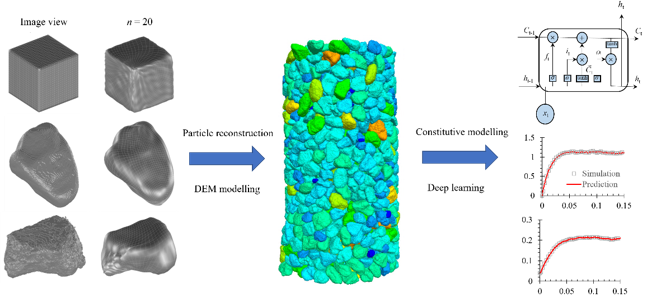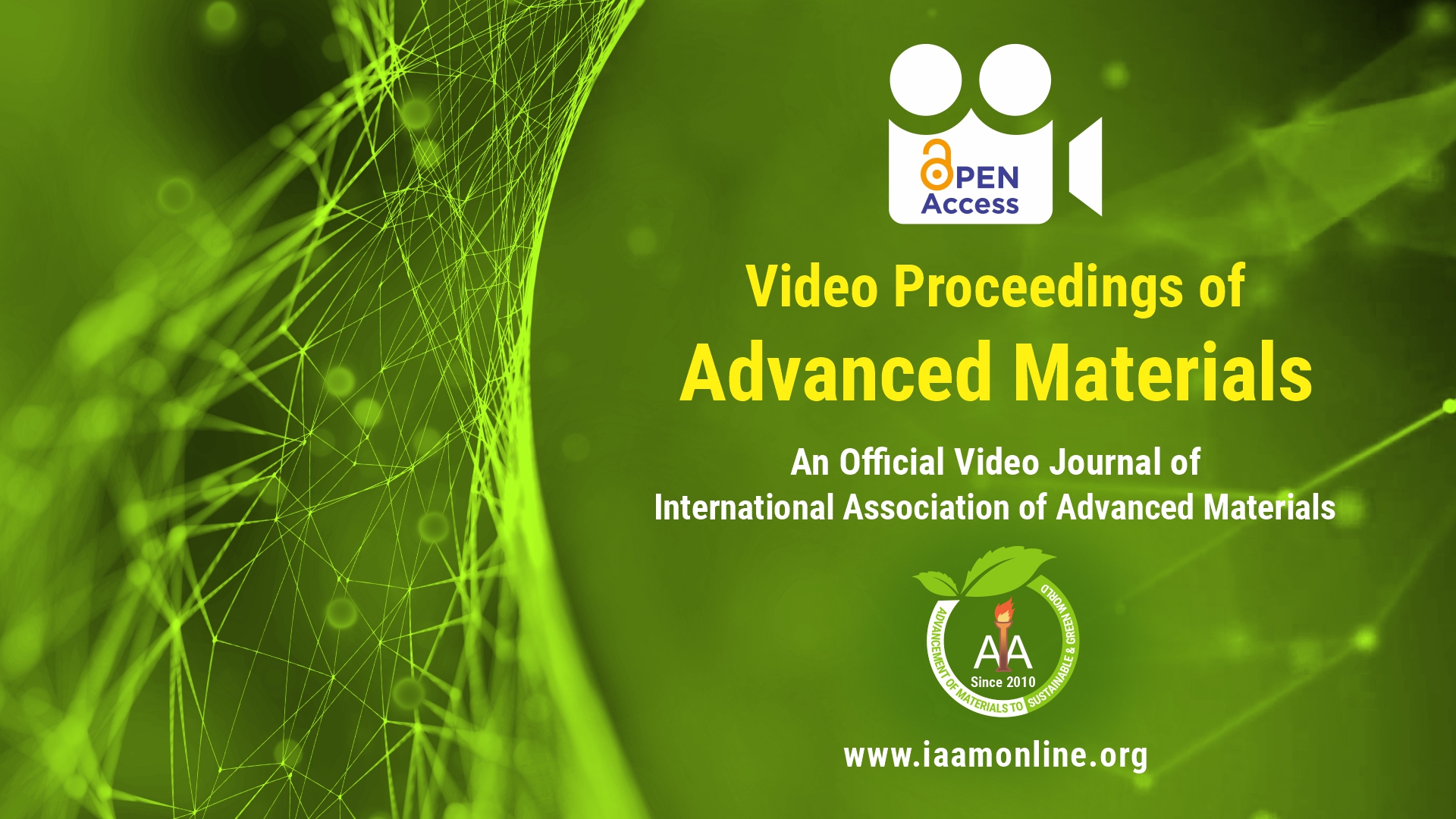Video Article Open Access
Constitutive Modelling of Sands using A Deep Learning Approach
Jianfeng Wang*, Mengmeng Wu, Zhuang Cheng
City University of Hong Kong, Hong Kong, China
Vid. Proc. Adv. Mater., Volume 3, Article ID 2206281 (2022)
DOI: 10.5185/vpoam.2021.06281
Publication Date (Web): 12 Sep 2022
Copyright © IAAM
Graphical Abstract

Abstract
It is well known that particle shape plays a significant role in the macroscopic mechanical behaviour of a quasi-statically sheared granular materials. However, most of the previous studies neglected the particle shape effects or characterized the particles with simplified geometries when predicting the constitutive behaviour of granular materials. This lecture presents a paradigm-shifting methodology for the constitutive modelling of granular soils subject to triaxial shearing which integrates the techniques of X-ray micro computed tomography, three-dimensional discrete element modelling and deep learning. Firstly, the triaxial testing on a mini-sample of a quartz sand with in-situ micro computed tomography is performed to acquire the complete set of macro- and micro-scale mechanical properties of the sample. Secondly, the tomography data of a series of representative sand particles is used to construct the three-dimensional discrete element model of the sand sample which is then used to generate the numerical datasets for the subsequent deep learning task. Thirdly, a deep learning model called the long short-term memory network is developed to capture the combined effects of particle shape, confining pressure, and initial sample density on the constitutive behaviour of sands. Lastly, the effectiveness of the deep learning model is shown by comparing the model prediction on the testing datasets with the numerical simulation results. The capability of the model on predicting the real sand behaviour is further demonstrated by an excellent agreement between the model prediction based on the input of tomography data and the soil response measured from the triaxial test. The testing results of the deep learning model demonstrate that the effects of particle morphology, confining pressure, and initial sample density on the constitutive responses of real granular systems can be well captured by the proposed LSTM-NN with a high degree of accuracy. The developed DL model learns and reflects the intrinsic physical mechanisms underlying the granular material behaviour such as stress-strain, volumetric compression and dilatancy, strain hardening and softening, and shear-induced fabric evolutions very well, opening a new avenue towards the micromechanics-based constitutive modelling of granular materials.
Keywords
Granular materials; particle shape; x-ray micro tomography; discrete element method; deep learning.
Acknowledgement
This study was supported by General Research Fund Grant Nos. CityU 11201020 and CityU 11207321 from the Research Grants Council of the Hong Kong SAR and Research Grant No. 51779213 from the National Science Foundation of China.
Biography
Jianfeng Wang is currently an Associate Professor at the Department of Architecture and Civil Engineering at City University of Hong Kong. Dr. Wang received his BSc and MSc degrees from Tongji University, China and his PhD degree from Virginia Tech, USA. Over the past 20 years, Dr. Wang has been working in the areas of X-ray CT in-situ testing, characterization, and discrete element method (DEM) modelling of geomaterials. Dr. Wang's work has been awarded the prestigious international prize of 2011 Geotechnical Research Medal from the UK Institution of Civil Engineers and 2010 Higher Education Institutions Outstanding Research Award - Natural Science Award from the Ministry of Education of China. Dr. Wang has attracted over 7 million HKD of external grants from the Research Grant Council of Hong Kong SAR and the National Science Foundation of China and has delivered many keynote lectures in reputable international conferences and workshops. Dr. Wang currently serves as an Associate Editor of Géotechnique and an Editorial Board Member of Computers and Geotechnics, Journal of Rock Mechanics and Geotechnical Engineering, Soils and Foundations and some other journals. He also sits on TC 201 (Dikes and Levees), TC 220 (Field Monitoring in Geomechanics) and TC 221 (Tailings and Mine Wastes) of the Hong Kong Geotechnical Engineering Society under the International Society of Soil Mechanics and Geotechnical Engineering. So far Dr. Wang has published over 140 peer-reviewed articles including 80 SCI journal papers and over 60 international conference papers, with a Google Scholar H-index of 29.
Video Proceedings of Advanced Materials

Upcoming Congress



